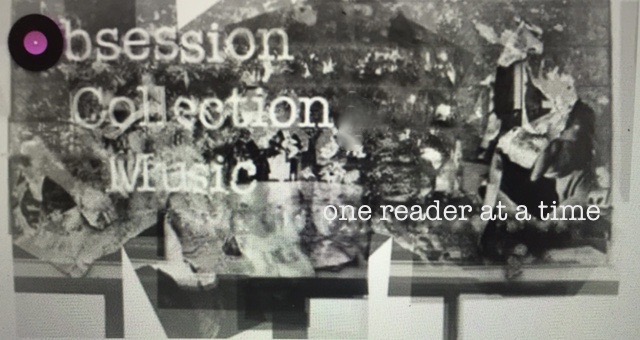Conor Oberst’s voice, timing and phrasing is at their best in “Cassadaga,” Bright Eyes seventh Full-Length release. I have always felt that Conor Oberst’s phrasing style and lyric delivery could be compared to Frank Sinatra, but in “Cassadaga,” the connection is more evident. He artfully structures words in a frame without sacrificing the timing, while the acute measurement of empty space guides the listener to linger. The emotional weight of his poetic verse is highlighted by the subtle nuance of his singing style. The songwriting blossoms with inference. It is uncanny how Oberst can attach imagery to thought, creating a pathway between the visual and cerebral cortex. Like: Standing on a doorstep full of nervous butterflies / or / vanish in a thick mist of change /. Utilizing this format, he accentuates the unpredictable nature of his song craft.
Adding to Conor Oberst’s inspired vocal delivery is the inventive music mixing by Mike Mogis and orchestra arrangements by Nate Walcott. Together they rework the Bright Eyes discography into a polished combination of alt-country styling, digital effects, orchestral lushness, and gorgeous choral flourishes. With outstanding guest appearances throughout, including Dave Rawlings’ signature guitar, the vocals of Rachel Yamagatta, Gillian Welch, Sheri, and Stacy DuPree, Jason Boesel, and M Ward's contributions on “Soul Singer.”
The Bright Eyes tradition of starting the first track with unusual sound effects like cassette recordings, children reading, keys turning on the car engine, or storytelling is continued in Cassadaga. “Clairaudients (Kill or Be Killed)” opens with a psychic reading, while supernatural orchestration leads into the atmospheric song. It explores the subject of destiny. A destiny is determined by individual choices or, in contrast, beyond the range of control, like in manmade and natural occurrences. This song sets the tonal direction for the entire collection of songs.
“Four winds” is a rollicking fiddle-driven fare disseminating a tirade of social, religious, and political epithets and emphasizing the hypocrisies of destiny offerings. Your class, caste, country, sect, name, or tribe / There are people always dying trying to keep them alive /. Here he extols the state of civilization as it repeats history.
“The Brakeman Turns My Way” emphasizes self-determination and the desire to search for answers. / It’s an infinite coincidence, but it doesn’t make a plan /. Some people are lucky to have the opportunity to change their fate and level out. The paradox is presented cleverly in the line / People snuffed out in the brutal rain /. The dichotomy is forcefully clear as the pulsating strumming and forceful rock/country styling take hold.
The fateful direction unfolds with “Classic Cars” as memory awakens to recall a passing love affair / like two quaint ships in the night / She leaves him with these thoughtful words / everything is a cycle / you’ve got to let it come to you / And when it does you’ll know what to do /. The wise offering guides him and ultimately influences his life.
In “Make a Plan To Love Me,” Conor’s crooning shines as sentimental strings pipe in on queue, and the lavish vocals of Rachel Yamagata are added to dress this romantic escapade. As they sing during the chorus / make a plan to love me / make a plan to love me sometime soon /.
The saddest and most heart-wrenching song, “No One Would Riot For Less,” is circa Bright Eyes at its best. As he sings / So love me now / Hell is coming / Kiss my mouth Hell is here /. And / Little soldier / little insect / you know war it has no heart / it will kill you in the sunshine or happily in the dark /. This is where the forbidding future, impending doom, and love collide.
The last song, “Lime Tree,” starts with simple guitar plucks and Conor’s voice.
At the end of the second verse, string arrangements exemplify the heartfelt words. Rachel Yamagata and Stacey Dupree's choral affectations are sublime, cascading the song to breathtaking levels. The song ends dramatically as he takes a major step into the world. Stepping gingerly into his destiny. / I took my shoes and walked into the woods / I felt lost and found with every step I took.
Turning a phrase and dreaming big dreams, Bright Eyes has established their destiny with every track on this stunning recording.
Label: Saddle Creek Records
Artwork and design by Zack Nipper
Utilizing the invention of a focal decoder, viewers can scan the art and see encrypted images and messages.
Focal Decoder by www.3dimages.co.uk patent no.2315240
"Four Winds" Review / Artifact

2 comments:
Very nicely written - I think you have indeed listened closely and you gave me some new insights into an album that I have been listening to rather obsessively for the last couple of weeks. Up for a little constructive criticism? I believe that the line is "cricket FOR a conscience" - y'know, like Jiminy Cricket. Also perhaps you mean epithets (as opposed to epaulets). These are really minor things. The only reason I know all these words is cuz I'm freakin' old (and I mean really old). You have a lovely writing style and a lot of interesting things to say. I look forward to reading some of your other reviews so I can expand my listening repertoire to include other indie artists. Thanks!
Thank you Anonymous. There is no excuse, I'm very old too. I made the necessary changes.
Artifact
Post a Comment